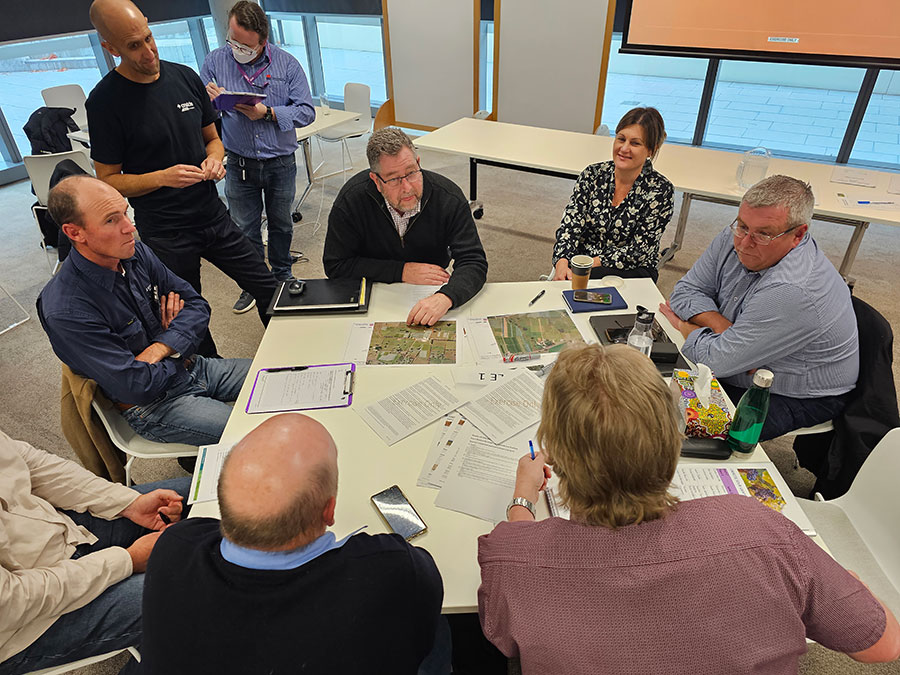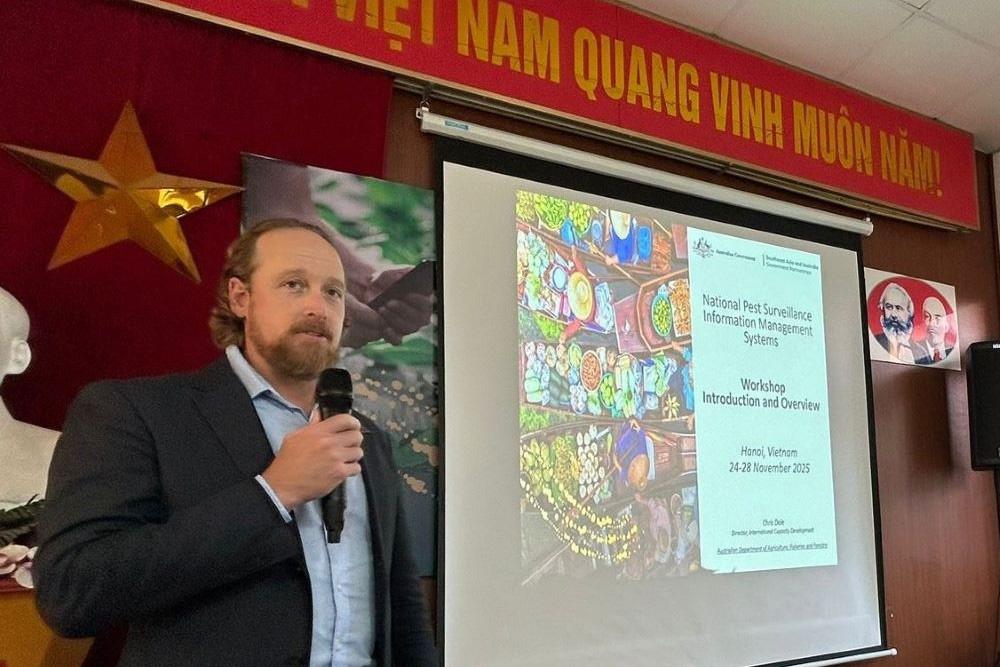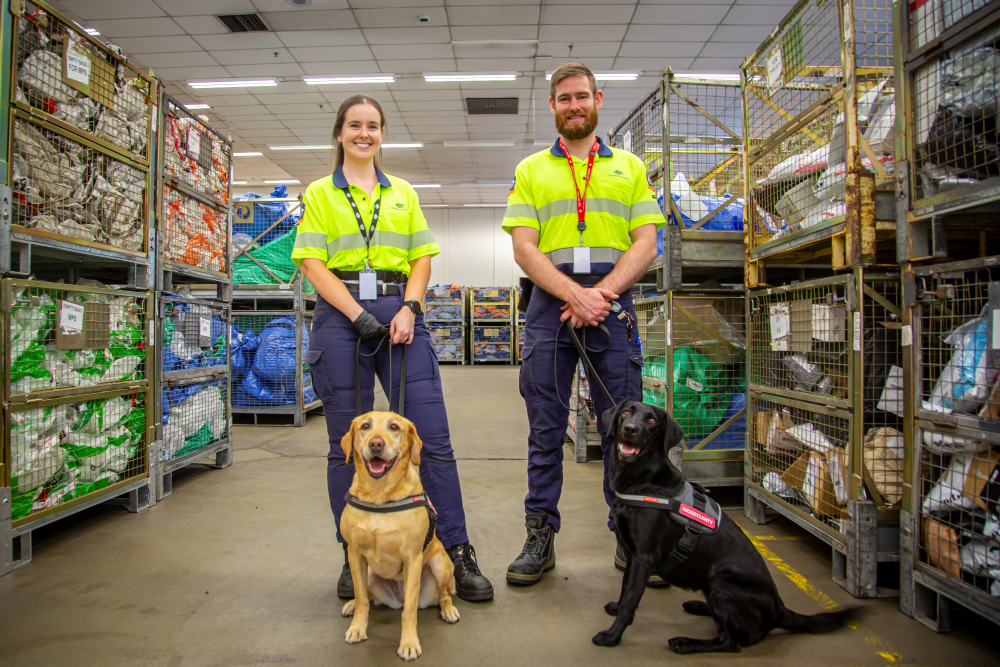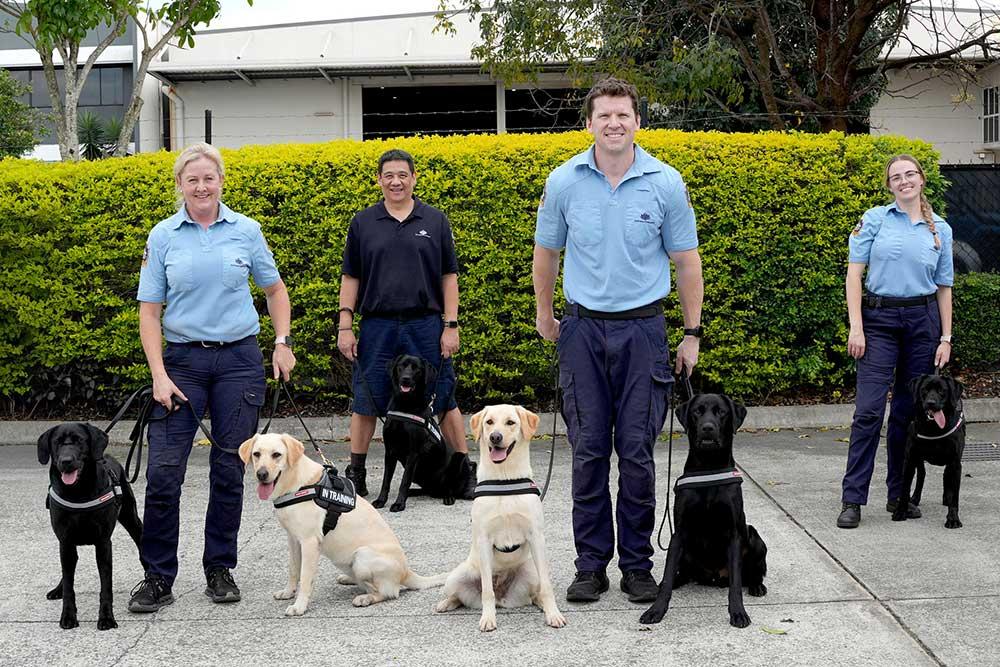Southern NSW Drought Resilience Adoption and Innovation Hub (hosted by Charles Sturt University)
In 2022, the Southern NSW Drought Resilience Adoption and Innovation Hub (the Hub) started the Managing Biosecurity Risks project in a significant step toward engaging regional communities to strengthen biosecurity management systems and strategies in Australian agriculture. The Hub brought together key regional stakeholders to expand their understanding of, and participation in, biosecurity management. This included the New South Wales Department of Primary Industries and Regional Development, the New South Wales Wine Industry Association (NSW Wine) wine producers, technology provider Onside and community representatives. They used lessons learnt to explore broader applications across the state and beyond.
A key component of the project was the Track and Trace System, which enables faster and more effective tracking of possible biosecurity risk vectors to minimise or manage biosecurity threats. This system uses a digital check in/check out app within the wine industry.
The Track and Trace System pilot was coupled with a regional biosecurity simulation (Exercise Sour Grapes) held in Orange in May 2023. It was designed to build awareness and increase involvement in biosecurity management among farmer, supply chain, community and response agencies. The simulation used data collected in vineyards over the life of the project to assess response efficiency and effectiveness and create information and tools to support future preparedness activities around biosecurity management. The response from participants in the Track and Trace project was positive. Participants reported increased awareness and knowledge of practices to manage on-farm biosecurity risks. The pilot demonstrated the potential of Track and Trace technology to address biosecurity needs and outbreaks.
The Hub undertook an extensive review process focused on the first phase of the biosecurity system (Prepare and Prevent) and developed a strategic framework for increased preparedness through targeted regional participation in extension and adoption activities nationally. The framework encourages participants to analyse gaps and identify outputs and activities most relevant to their region, community, and circumstances.
Through its Biosecurity Preparedness in Southern NSW Investment Framework, the Hub also highlighted the need for regional communities to be more actively and transparently involved in biosecurity. The Hub engaged the Regional Australia Institute to develop a Regional Biosecurity Framework to empower regional communities to engage in biosecurity preparedness.
The framework sets out steps for communities to develop their own biosecurity action plan by:
- limiting biosecurity risks by embedding preparedness in day-to-day activities
- identifying biosecurity preparedness opportunities and resources available to the region
- engaging regional community members, businesses and organisations in biosecurity preparedness activities.
The Hub and its project partners have created a blueprint for engaging communities and regions in biosecurity management that can now be tested, modified and applied to other regions and industries across Australia.
Southern NSW Drought Resilience Adoption and Innovation Hub (hosted by Charles Sturt University) was nominated by Stuart Kearns from Plant Health Australia.
Watch a video about their work
Introduction
This is the accessible text transcript of a 2024 Australian Biosecurity Awards winner video featuring Cindy Cassidy and James Sweetapple.
Transcript
Cindy Cassidy: I'm Cindy Cassidy, director of the Southern New South Wales Drought Resilience, Adoption and Innovation Hub. We are excited and honoured to accept this award in the community category of the 2024 Australian Biosecurity Awards. In 2022, the hub implemented and drove the Managing Biosecurity Risks project in a significant step toward enhancing current biosecurity management systems and strategies at a community level in Australian agriculture.
I'm pleased to share a little bit about the track and trace component of our managing biosecurity project. This brought together wine producers, New South Wales DPI, now DPIRD, and community stakeholders to better understand the risks of biosecurity to southern New South Wales communities and to develop a framework for community engagement in biosecurity preparedness.
Biosecurity not an agricultural problem. It is a community problem. The purpose of this project is to engage people in the broader community, as well as farmers and their supply chains in biosecurity management, where we're saying, what are the assets that you value in your community that have got the potential to be affected if biosecurity goes wrong in one of your ag sectors? So we're collecting data that demonstrates the value at risk, and then we're engaging community in having a conversation about how important that is.
James Sweetapple: Biosecurity is everybody's responsibility, but it needs someone to manage it. I’m James Sweetapple, the owner and manager of Cargo Road Winery in Orange. If there is a phylloxera outbreak in this region, the economic impact to the businesses and the community is unthinkable. It's too hard to think of.
There's an investment that we can make in grassroots preparedness that will reduce the cost of the exposure in the event of a big incursion.
If we can put these things in place, we can respond more quickly. We can limit the damage and we can recover more quickly.




